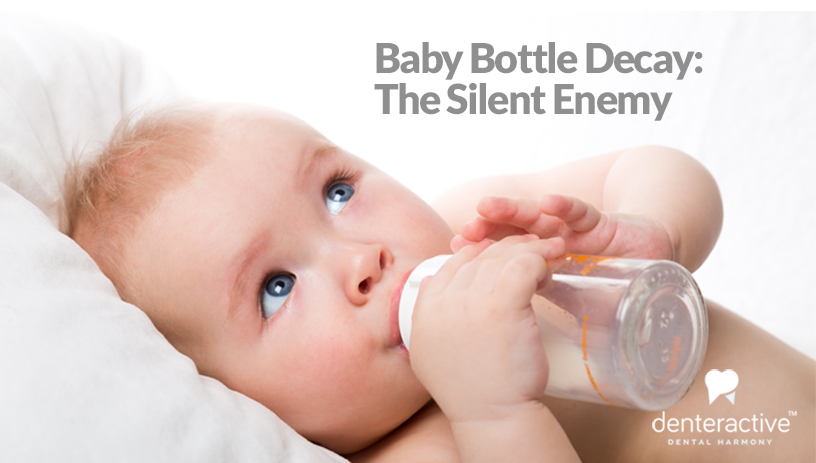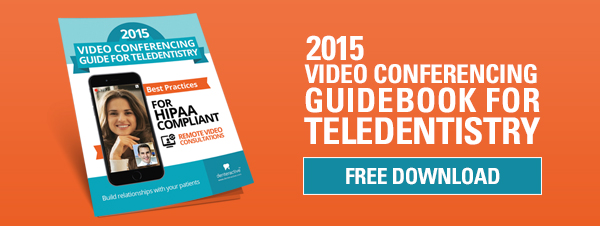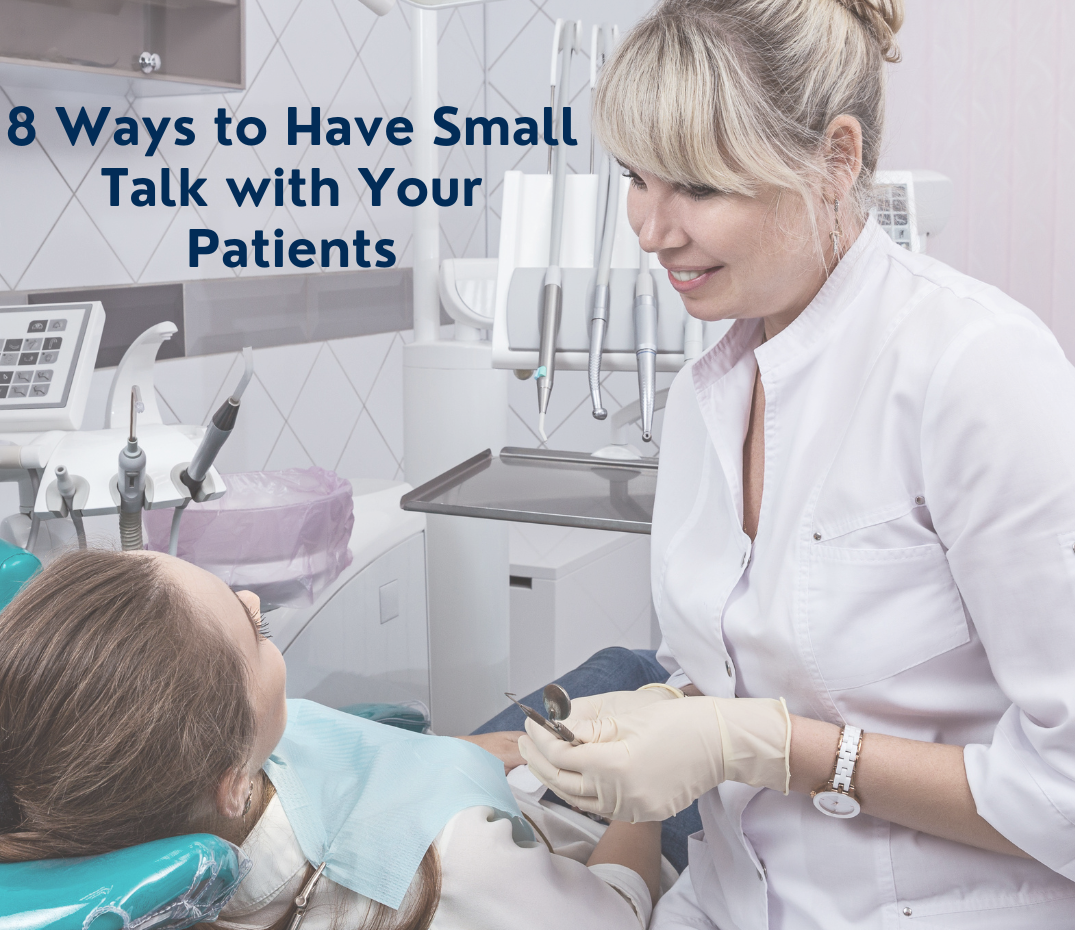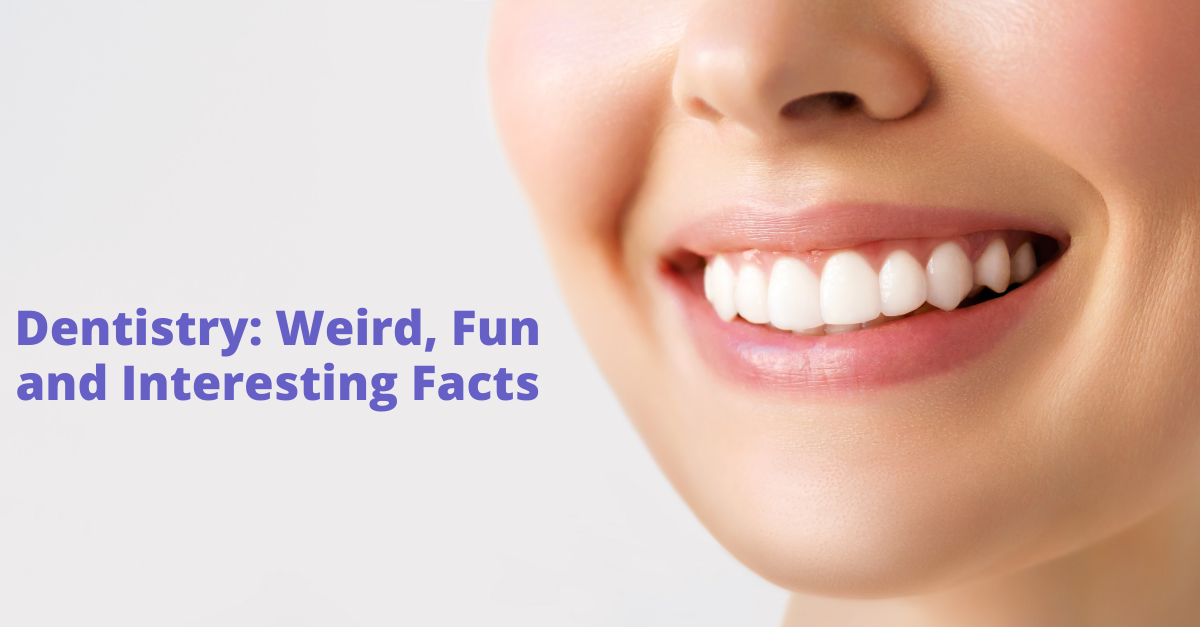Baby Bottle Tooth Decay: The Silent Enemy

Everyone knows the importance of teaching their children to brush their teeth. Not only you buy your child toothbrushes that have his or her favorite cartoon characters on them, toothpaste companies add yummy bubblegum and cherry flavors to their products, all in an attempt to get kids to brush regularly and thoroughly.
How early should you concern yourself with your child’s teeth?
Infant caries is the term used by dentists to indicate the presence of tooth decay in very young children. It is the most common chronic infectious disease diagnosed in infants and toddlers. It is also known as:
- Bottle mouth
- Baby bottle tooth decay
- Early childhood caries
What causes infant caries?
Early childhood caries is caused by regular exposure of a child’s teeth to acid producing bacteria through bad oral hygiene, early bacterial transfer from the main caretaker, and concurrent exposure to drinks and foods containing sugars. Everything from formula, cows milk, and fruit juices contain sugars that pool in your child’s mouth. Cavity causing bacteria in the plaque around their teeth and gums, breakdown these sugars and release acids that eat away at the protective layers of teeth and do damage. Every time a child consumes these liquids or foods, acid produced by the bacteria go on the attack, and in time, a cavity develops. In young children they usually start on top of front teeth, but it could affect other teeth as well.
My baby is breast-fed. She’s okay, right?
Wrong. Breast-fed infants who continue to suckle even after they have fallen asleep face this same problem. Breast milk contains lactose, a natural sugar, but it is still sugar, and has the potential to cause cavities. Although breast milk is superior in regards to providing the best nutritional value to your child, if given more than seven times daily after 12 months, it can lead to increased risk of early childhood caries.
My baby does not go to sleep with a bottle but he does suck a pacifier.
Frequent use of pacifiers can cause their own set of problems with the shaping of your child’s mouth and how straight the teeth grow in. Don’t add to those issues by dipping the pacifier in sugar, honey, or syrup.
But baby teeth are temporary, right? Why should it matter if they get cavities?
Your child’s baby teeth are important. Children need healthy teeth to eat their food, speak properly, and to give us those high-wattage smiles we all love. These first teeth also help ensure that their adult teeth come in properly. In addition, if a baby tooth is badly decayed and develops a deeper infection, it can affect the permanent teeth, and, lead to abscesses that can put your child in an emergency room.
What does tooth decay look like?
The early signs of cavities might first appear as white spots on the upper front teeth at the gum lines. As it develops, it may start to look like dark holes. By this time it is causing your child to have toothaches, and making it difficult to eat.
The American Dental Association recommends:
- From Birth to 12 months: Gently wipe his/her gums with a clean, soft clothe used just for that purpose. When the first teeth start to come in, gently brush using a soft baby toothbrush and a smear dab of fluoride toothpaste if they are at high risk for cavities; otherwise, use non-fluoridated toothpaste until the age of two, when your child knows how to spit.
- From 12 months to 6 years: Teach your child to brush his/her teeth, and help them with it at least twice a day-after breakfast and just before bedtime.
- Never put your child to bed with a bottle or Sippy cup.
- Teach them to drink from a regular cup as soon as possible, preferably by the time they reaches 12-months of age.
- If your child will not settle down at night without a bottle, fill it with water.
- After six months of age, serve juice only during meals, and dilute it with water: the recommended amount is 4-6 ounces only. Between meals only give them water.
- Make that initial appointment with your child’s dentist at 12 months of age, or six months after the first tooth has erupted.
Remember, tooth decay can be prevented. Long before your child is old enough to use that pretty toothbrush for herself, care for her teeth and gums by putting away those bottles when she goes to sleep.




